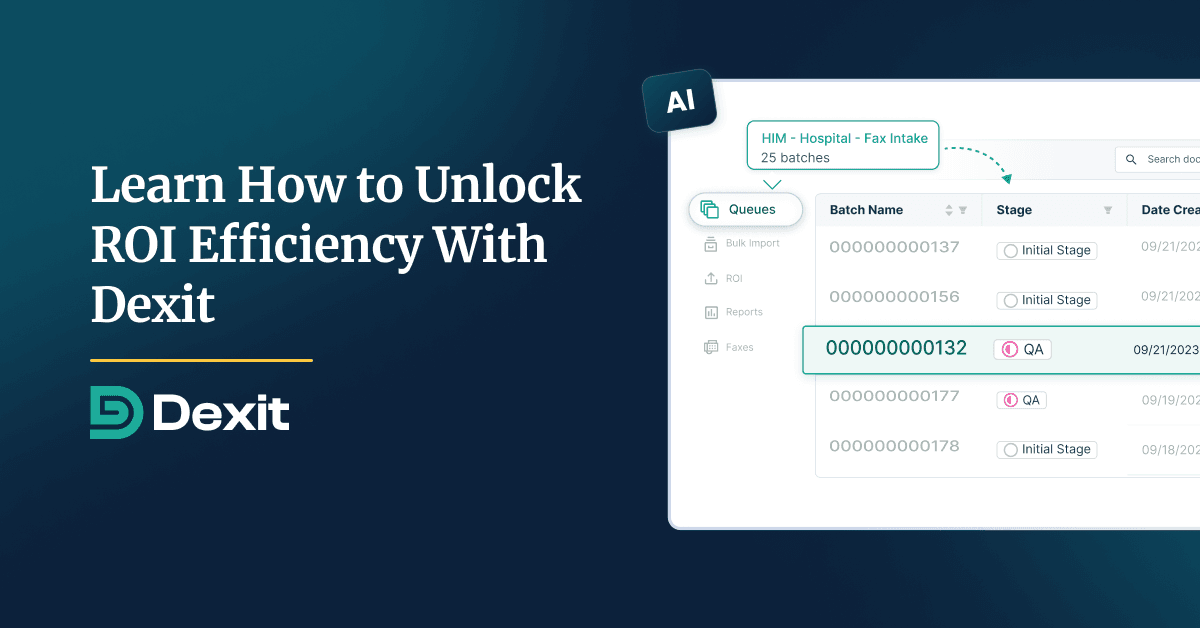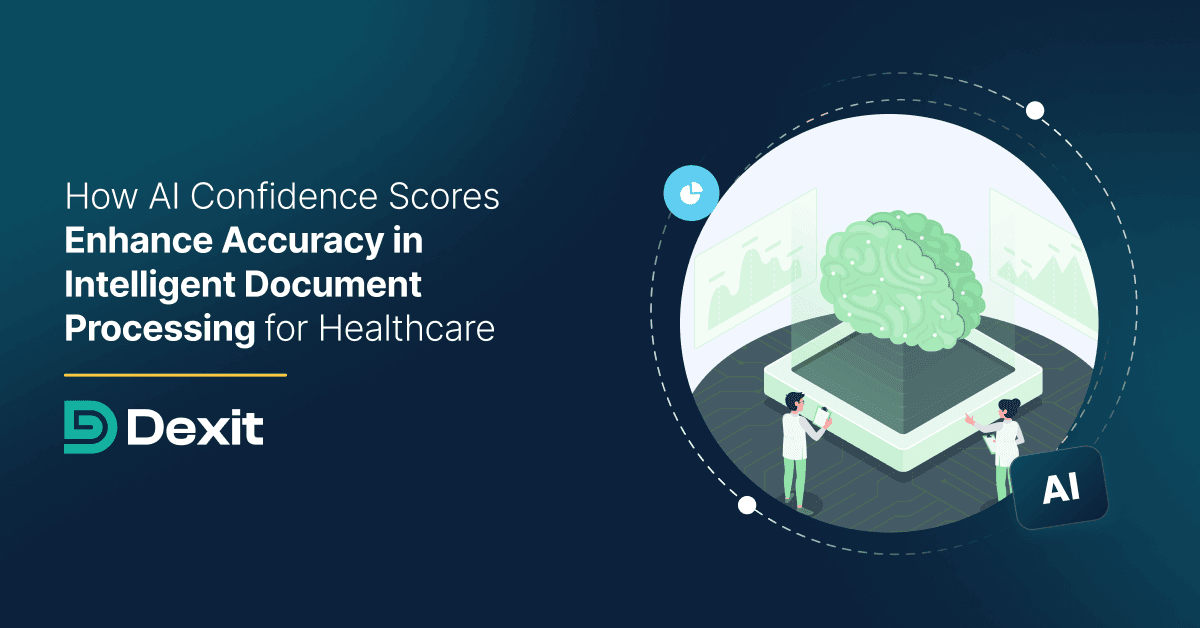
How Dexit Uses Intelligent Document Automation to Manage Healthcare Documents
The healthcare industry generates nearly 30% of the world’s data. And much of this data is in the form of …

Dealing with healthcare document management challenges is no small feat, especially when patient matching errors pose a serious threat to patient safety. The old-school methods of manual matching and relying on barcodes have proven error-prone and often inefficient. According to a study conducted by the U.S. Government Accountability Office (GAO) in 2019, it was reported that there is a lack of a solution in the industry that can achieve highly reliable matches for all patients across all EHR systems. Even today, patient matching errors stand as a significant hurdle in the Healthcare Information Management (HIM) industry.
Dexit - a HIPAA-compliant healthcare document management system, has been exclusively designed by seasoned Healthcare Information Management leaders after years of struggling with patient-matching errors in the industry. In today’s blog, we’ll explore how Dexit, with its cutting-edge AI patient-matching solution, is poised to address the pressing challenges that arise from the increasing complexity of patient information entry into healthcare systems.
Patient matching errors are not just administrative inconveniences; they can have severe repercussions for patient safety. When physicians are unable to access accurate medical records or encounter incomplete or inaccurate information, the risk of providing incorrect treatments escalates. The sources of these errors are varied and often stem from typos, data entry mistakes during initial information input, common names, missing information, and the challenge of updating patient data consistently.
Manual patient matching has long been a labor-intensive and error-prone process in healthcare. Relying on barcodes for patient identification has its limitations, often leading to misidentification and potential lapses in patient care. The sheer volume of healthcare documents further complicates the process, making it susceptible to human error and delays. Reports suggest that HIM staff spend hours correcting patient identification errors.
According to a Wall Street Journal article, the complexity of patient matching further escalates as different Electronic Health Records (EHR) systems address patient entries in varying ways. For instance, one system may use “Street” in addresses, while others may use “St.”
Dexit’s AI patient-matching feature directly addresses these challenges by eliminating the reliance on barcodes and manual patient-matching approaches. Dexit’s AI patient-matching ability stands as one of the software’s key distinctions. Unlike traditional methods that rely on scanning barcodes to match patients, Dexit’s AI scans entire pages of healthcare documents, intelligently reads patient information, and matches it with the Master Patient Index (MPI).
What sets Dexit apart is its ability to go beyond the confines of your health organization. Dexit’s AI identifies Patient Health Information (PHI), even in documents originating from external sources. This capability streamlines the process, eliminating the need for laborious preparation in document indexing. The result is a flawless, error-free patient-matching experience that significantly enhances efficiency in healthcare workflows.
By addressing the shortcomings of manual patient matching and barcode reliance, Dexit paves the way for a more efficient, accurate, and streamlined process for patient-document matching. This ensures that healthcare providers focus more on their primary job, which is patient care, and less on the administrative burden of manual patient matching. The combination of reduction of manual labor and the ability to handle diverse document sources position Dexit as a reliable innovation in the healthcare document management space.
Join over 3,200 subscribers and keep up-to-date with the latest innovations & best practices in Healthcare IT.

The healthcare industry generates nearly 30% of the world’s data. And much of this data is in the form of …

According to a 2023 HIMMS survey, nearly 65% of health systems lack medical images and other unstructured …

Healthcare runs on data, yet much of that data still arrives in the form of unstructured documents — from …